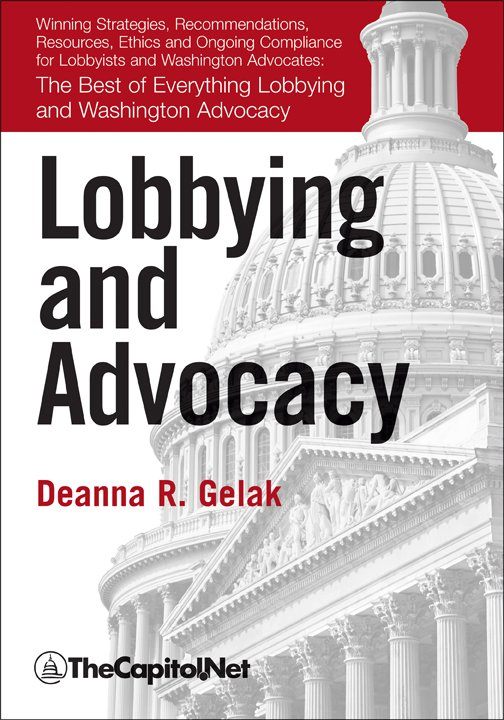“The Podestas Face Tough Questions About Lobbying,” by Marc Ambinder, The Atlantic, October 1, 2010
From Lobbying and Advocacy, by Deanna Gelak:
§1.1 Introduction
Nearly every legislative day, thousands of lobbyists are watching, monitoring, and working to influence the outcome of legislation at the federal level. Simultaneously, lobbyists are presenting hundreds of testimonies and briefings in state legislatures, municipalities, and local governments. The constitutional basis and role of lobbying as an essential part of our governmental process are discussed in this chapter. Lobbyists frequently find themselves in a position of defending their profession.
Chapter One provides a brief overview of the development of the practice of lobbying in the United States, which reveals the profession’s honorable birth. This chapter also includes a discussion of the basis for lobbying, an overview of types of lobbying, and profiles lobbyists and the nature of their work.
§1.2 The Textbook Definition of Lobbying
According to the 2007 Merriam-Webster Online Dictionary, lobbying means “to conduct activities aimed at influencing public officials and especially members of a legislative body.” Encyclopedia Britannica Online defines lobbying as “any attempt by individuals or private interest groups to influence the decisions of government.” These definitions serve as a brief, general description. However, a fuller appreciation for the meaning of lobbying can only be gained by understanding the constitutional basis and the early history of lobbying, which are covered briefly in §§ 1.3 and 1.5.
§ 1.3 The Constitutional Basis for Lobbying
The fundamental right to lobby is grounded and protected in the First Amendment to the U.S. Constitution, the cornerstone of our freedoms:
. . . Congress shall make no law . . . or abridging the freedom of speech, or of
the press; or the right of the people peaceably to assemble, and to petition the
Government for a redress of grievances.
For more than 40 years, TheCapitol.Net and its predecessor, Congressional Quarterly Executive Conferences, have been teaching professionals from government, military, business, and NGOs about the dynamics and operations of the legislative and executive branches and how to work with them.
Our custom on-site and online training, publications, and audio courses include congressional operations, legislative and budget process, communication and advocacy, media and public relations, testifying before Congress, research skills, legislative drafting, critical thinking and writing, and more.
TheCapitol.Net is on the GSA Schedule, MAS, for custom on-site and online training. GSA Contract GS02F0192X
TheCapitol.Net is now owned by the Sunwater Institute.
Teaching how Washington and Congress work ™


